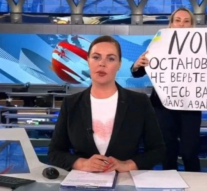
Disinformation at war: how to combat this phenomenon?
Employment and Social Affairs 2 July 2022Estimated time of reading: ~ 2 minutes
Disinformation during the ongoing conflict in Ukraine it is just the latest reminder of how dangerous for democracies information manipulation can be. Constant and almost unlimited access to online information is one of the greatest successes of digitalisation, but the Covid-19 pandemic and the war in Ukraine showed us that it can be used to spread dangerous disinformation campaigns.
The EU is addressing this threat with a mix of legislation, such as the Digital Services Act and unique tools, such as newly unveiled anti-disinformation Code. The strengthened Code of Practice on Disinformation has been signed and presented on the 16 June 2022 by 34 signatories who have joined the revision process of the 2018 Code.
The new Code aims to achieve the objectives of the Commission’s Guidance presented in May 2021, by setting a broader range of commitments and measures to counter online disinformation: demonetisation, by cutting financial incentives for purveyors of disinformation; transparency of political advertising; ensuring the integrity of services; empowering users; empowering researchers; empowering the fact-checking community; the creation of a transparency centre and task-force. Russia’s war in Ukraine has underscored what we already know from numerous elections and the COVID-19 pandemic: disinformation flows are global and cross-platform, but responses are national or regional and focus predominantly on dominant languages, and the largest, most established technology companies.
On 29th of June the European Digital Media Observatory (EDMO) Taskforce on Disinformation and the War in Ukraine published its 10 recommendations. The following onesare the key point of the recommendations: establish a permanent body with an EU-wide network of centers with a focus on preparing for and responding to ongoing and emergency information challenges; build a networked infrastructure for educating people about disinformation and media literacy; require platforms to share data around different types of content; ensure that technology companies enforce their policies in terms of prohibiting ad funded disinformation; construct media monitoring systems sophisticated enough to capture the flows of disinformation; enforce policies to protect journalists and strengthen media freedom; implement policies for transparent decision making around content removal; put in place funding and support for the mental health and well-being of researchers, fact-checkers and journalists working on war reporting and disinformation investigations; develop new ethical frameworks for civil society and government initiatives working to fight disinformation; build an EU-wide pipeline of researchers, university centers, journalists, fact-checkers and other civil society groups with the necessary technical, linguistic and subject-matter knowledge to respond quickly to future information challenges.
Written by: Valerio Palombaro



